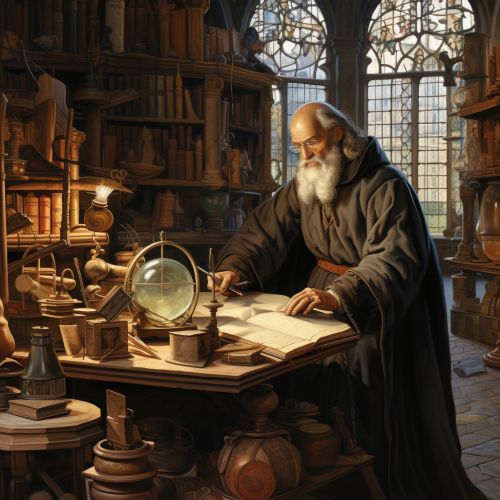List of French scientists
Early French Scientists
The history of French science dates back to the Middle Ages, with notable figures such as Pierre Abélard and Peter of Maricourt. These early scientists laid the groundwork for the scientific revolution in France, which would later produce some of the world's most renowned scientists.


Pierre Abelard
Pierre Abélard (1079–1142) was a medieval French scholastic philosopher, theologian, and preeminent logician. His work on logic and theology, while controversial in his time, had a significant impact on the development of the Western philosophical tradition.
Peter of Maricourt
Peter of Maricourt (fl. 1269), also known as Petrus Peregrinus de Maricourt, was a French scholar who made significant contributions to the field of magnetism. His work, "Epistola de Magnete," is one of the earliest detailed studies of magnets and their properties.
The Age of Enlightenment
The Enlightenment was a period of intellectual and scientific flourishing in France. French scientists such as Rene Descartes, Blaise Pascal, and Pierre-Simon Laplace made significant contributions to a variety of scientific fields.
Rene Descartes
Rene Descartes (1596–1650) was a French philosopher, mathematician, and scientist. He is often considered the father of modern Western philosophy, and his work in mathematics led to the Cartesian coordinate system, which is fundamental to modern geometry and calculus.
Blaise Pascal
Blaise Pascal (1623–1662) was a French mathematician, physicist, inventor, writer, and Catholic theologian. He made significant contributions to the fields of fluid dynamics and pressure, and his work on probability theory laid the groundwork for modern economics and social science.
Pierre-Simon Laplace
Pierre-Simon Laplace (1749–1827) was a French scholar whose work was important to the development of mathematics, statistics, physics, and astronomy. He is remembered for his work on celestial mechanics and his theoretical explanation of the nebular hypothesis, the idea that the solar system evolved from a hot, rotating nebula.
Modern French Scientists
In the modern era, French scientists continue to make significant contributions to various scientific fields. Notable figures include Marie Curie, Louis Pasteur, and Henri Poincaré.


Marie Curie
Marie Curie (1867–1934) was a Polish-born French physicist and chemist who conducted pioneering research on radioactivity. She was the first woman to win a Nobel Prize, and the only person to win the Nobel Prize in two different scientific fields—physics and chemistry.
Louis Pasteur
Louis Pasteur (1822–1895) was a French biologist, microbiologist, and chemist renowned for his discoveries of the principles of vaccination, microbial fermentation, and pasteurization. His work in germ theory and his development of vaccines for diseases like rabies and anthrax had a profound impact on public health.
Henri Poincare
Henri Poincaré (1854–1912) was a French mathematician, theoretical physicist, engineer, and philosopher of science. He made many original fundamental contributions to pure and applied mathematics, mathematical physics, and celestial mechanics. He was responsible for formulating the Poincaré recurrence theorem, which states that certain systems will, after a sufficiently long but finite time, return to a state very close to the initial state.
